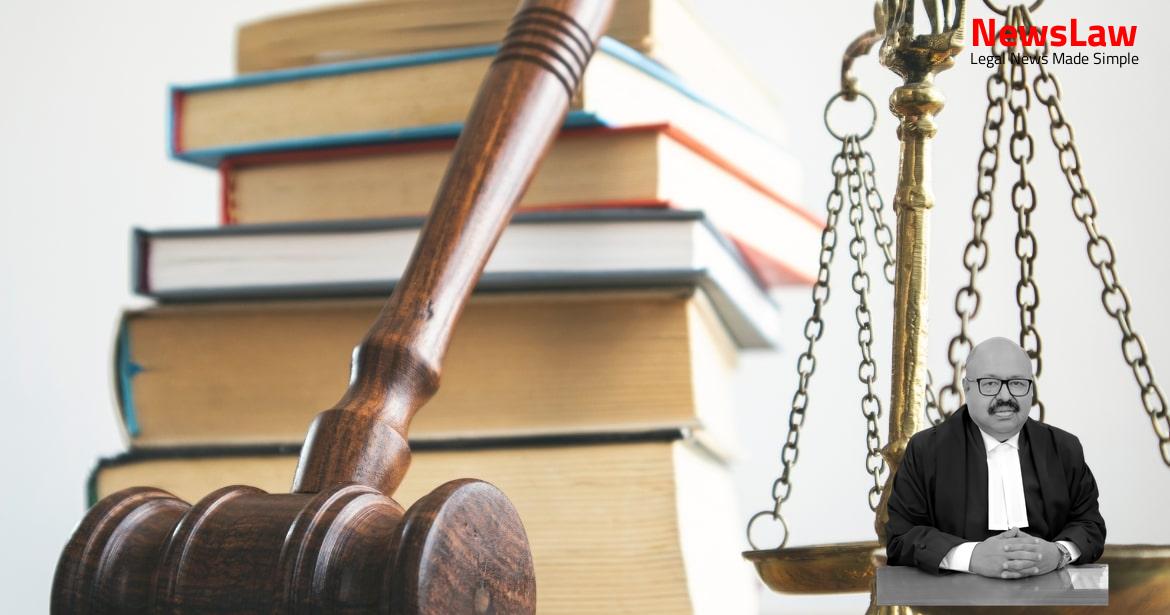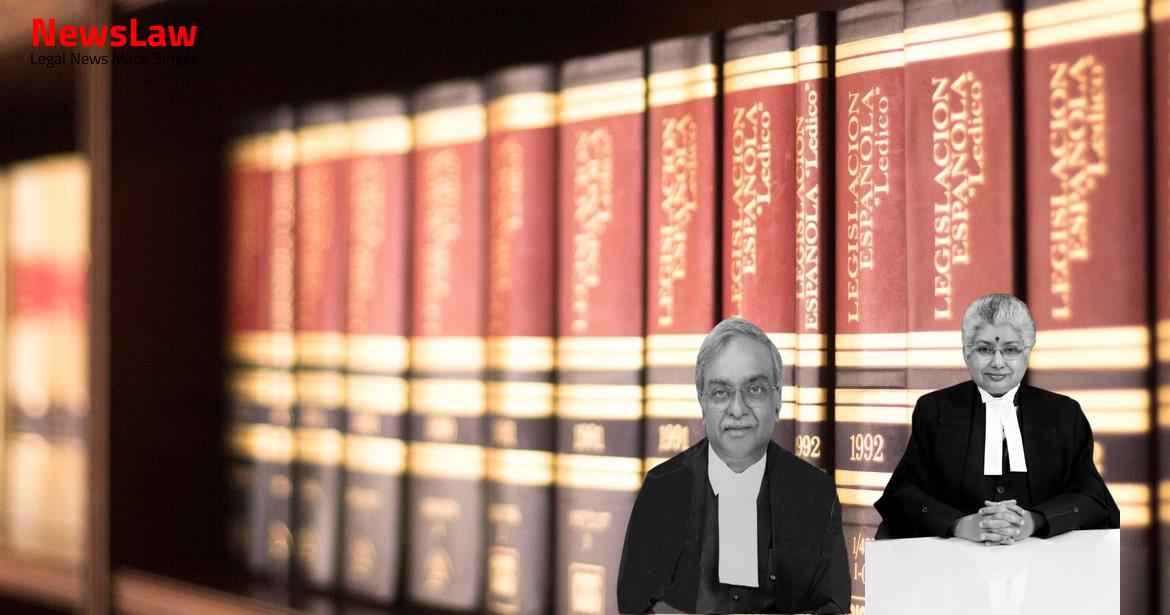In a recent legal case, the court delved into the intricate details of the Land Ceiling Act, focusing on compliance and statutory provisions. The court’s analysis centered on the jurisdiction of the Civil Court to challenge the Competent Officer’s order under Section 46 of the Act, and the sustainability of the first appellate court’s judgment under the provisions of the Act. This case highlights the importance of adherence to legal protocols and the consequences of non-compliance with statutory requirements.
Facts
- The appellant’s possession of the land exceeding the prescribed ceiling limit was challenged based on a civil suit filed by Jenobai seeking declaration of title and permanent injunction.
- The appellant was alleged to have colluded with the Patwari to get the disputed land mutated in his name.
- The competent authority initiated the process to acquire the surplus land based on the final order declaring the land as surplus.
- The appellant’s claim of pending suit by Jenobai as a reason for keeping the proceedings under the said Act in abeyance was considered.
- The appeal filed by the appellant under Section 96 of the CPC resulted in the dismissal of the suit.
- The trial court decree dated 7.10.1997 established Jenobai as the owner in possession of the disputed land.
Also Read: Supreme Court Judgment on Single Till Mechanism for HRAB Calculation: A Comprehensive Analysis
Issue
- The High Court framed two substantive questions of law on 8.5.2008
- The first question addresses the jurisdiction of the Civil Court in challenging the order of the Competent Officer under Section 46 of the Act
- The second question pertains to the sustainability of the judgment and decree of the first appellate court under the provisions of the Act
Arguments
- Section 46 provisions subject to Section 11(5) of the Act
- Reference to Competent Authority, Tarana District, Ujjain (M.P.) v. Vijay Gupta & Ors.
- Opinion that a civil suit can be filed within three months of order by competent authority under Section 11(4)
- Admission of disclosure by appellant regarding suit filed by Jenobai
- Requirement for respondents to wait for outcome of suit and invite objections from Jenobai
- Learned counsel for the respondents highlighted that the appellant mentioned the pending suit with Jenobai in the return filed under Section 9 of the Act.
- However, the documents supporting this claim were not presented or exhibited before the trial court by the appellant.
Also Read: Selection and Appointment of Judicial Officers in Himachal Pradesh
Analysis
- Section 11 of the Act deals with the preparation of a statement of land held in excess of the ceiling area.
- The competent authority is required to prepare a draft statement for each person holding land in excess of the ceiling area based on the information provided in the return under Section 9 or obtained under Section 10.
- The draft statement must be published and served on the concerned parties, and any objections received must be duly considered by the competent authority.
- If the question is already pending before a competent court, the competent authority must await the court’s decision.
- Once all objections have been disposed of, necessary alterations are made to the draft statement, and a final statement specifying the surplus land held by each holder is published and sent to the concerned parties.
- The final statement is conclusive evidence of the facts stated therein as per the provisions of the Act.
- Appellant was declared as the bhumiswami of the surplus land.
- The possession of Jenobai was not proved by any evidence.
- No evidence of breach of Sections 11(3) and 11(4) of the said Act by the competent authority.
- No adverse inference against the appellant for lack of disclosure about the suit in the return.
- Failure to produce records drew adverse inference against the respondents.
- The civil suit between appellant and Jenobai was decreed leaving certain land within prescribed limits.
- The civil suit was maintainable as per Sections 11(4) and 11(5) of the said Act.
- Failure to comply with statutory provisions by respondents led to breaching the scheme of the Act.
- The suit under Section 11(5) had to be filed within three months from Section 11(4) order.
- The respondents failed to comply with provisions of Section 11 and keep proceedings in abeyance.
- High Court allowed the appeal based on non-compliance with the Act by respondents.
- No challenge to the order under Section 11(6) made the suit not maintainable.
- The decree in favor of Jenobai results in the appellant losing the right to hold the land in question.
- As a consequence, the appellant’s total land holding now falls within the ceiling limit.
Decision
- The impugned order is set aside and the order of the first appellate court is restored.
- The appeal is allowed, and the parties are to bear their own costs.
Case Title: BAJRANGA (DEAD) BY LRS. Vs. THE STATE OF MADHYA PRADESH (2021 INSC 26)
Case Number: C.A. No.-006209-006209 / 2010



